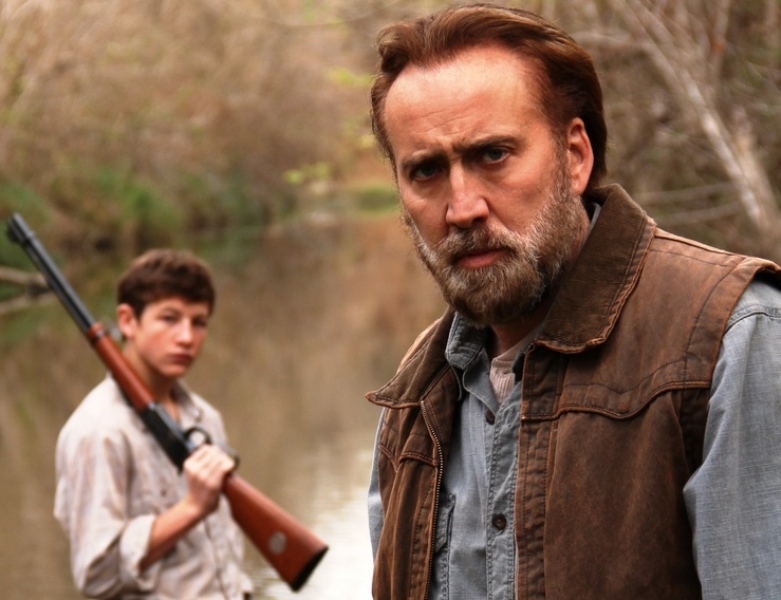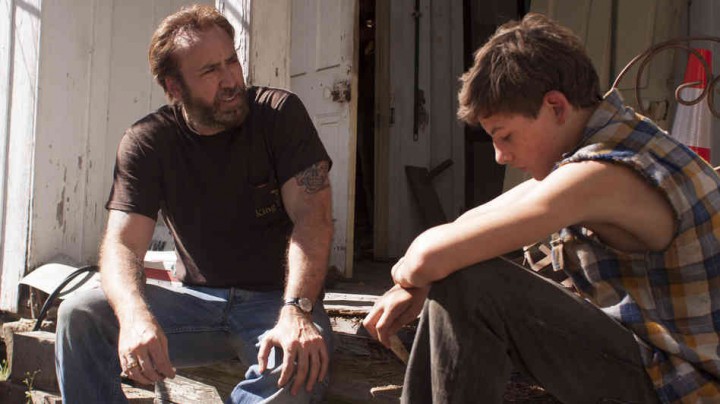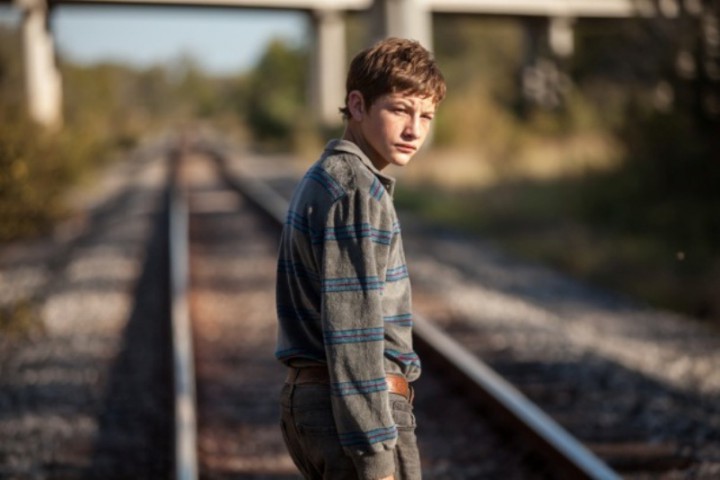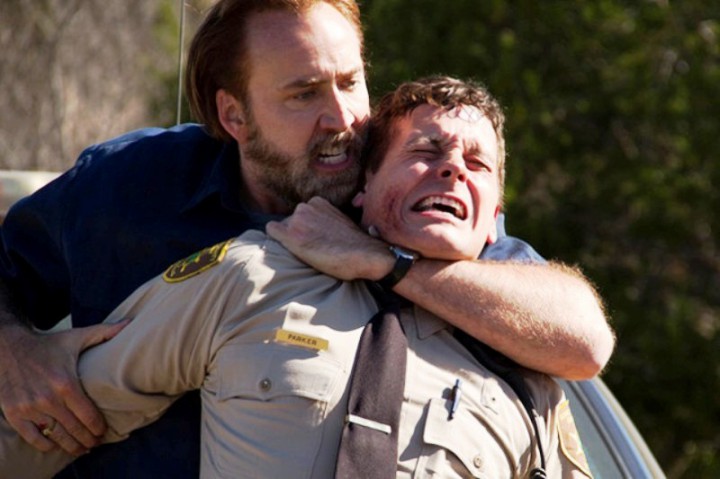I have tried to like David Gordon Green’s work for years and failed. I’m afraid his generally highly regarded Joe has done nothing to change that. I freely admit that my taste for Southern gothic is limited, so that plays a part. But Joe is a messy movie that manages at once to be meandering and almost painfully predictable. More, it takes what is essentially a thick slab of sleazy, hicksploitation melodrama and does its damndest to romanticize and sentimentalize it. Much of the film is bathed in cinematographer Tim Orr’s golden, dappled-sunlight imagery, and we even get a dose of his trademark time-lapse photography. This may serve Green’s vision, but it feels false. It’s like the film wants to be the next Winter’s Bone (2010), but lacks the courage of its convictions. At best, it’s Winter’s Bone-lite.
The story concerns Joe (Nicolas Cage), an ex-con with a dubious profession and a natural tendency to get into trouble. He’s not presented as a bad guy — at least within the film’s cheap-booze, whorehouses, dog-fighting milieu — just one with a short temper in regards to anything he perceives as injustice. He might also have a too-kind heart. His job — illegally poisoning trees so the logging company can cut them down and replace them with trees more suitable for wood production — requires day laborers. This is how he meets Gary (Tye Sheridan, Mud), a 15-year-old boy with an abusive, psychotic, alcoholic father, Wade (Gary Poulter, a real homeless man who died on the streets shortly after the film was made). Joe immediately likes the boy and even tries to employ Wade, but that’s predictably doomed. At first, Joe fires them both, but he takes Gary back, and a friendship grows between them. It’s the kind of story that follows a fairly straight trajectory. The film, and presumably Larry Brown’s novel, both want to be more, and so we get the addition of several subordinate stories.
Structurally, this is where the film runs into problems. A secondary romance between Joe and a woman (Adrienne Mishler) is, I think, meant to flesh out Joe’s character, but it feels like padding. Similarly, his visits to the local whorehouse and the whole dogfight business feel remarkably inessential. But all of these pale compared to a scene where Wade brutally murders an old wino for a bottle of Boone’s Farm and some spare change. It may be meant to show the depths the character has reached, but it’s a dead end dramatically in that nothing comes of it. The film is on surer footing with Joe’s running feud with a scarred psycho named Willie (Ronnie Gene Blevins). Willie has also butted heads with Gary and is integrated into the overall story. (Plus, Willie’s tiresome, idiotic mantra, “I went through a windshield and I don’t give a fuck,” sets up the film’s most satisfying bit of black comedy.) While the ending may feel contrived and forced, the final — theoretically hopeful — scene just seems ridiculous and phony.
Much has been said about Nicolas Cage’s performance in Joe being a return to greatness. It may be more controlled than his more mainstream scenery chewing, but it works mostly because you can sense the inner, over-the-top Cage threatening to break through during the entire film. His Joe is a good performance, but it owes much to Cage’s overall filmography. How else could we buy into Joe as a guy who responds to being shot in the shoulder by lighting a cigarette? Plus, I’d be hard-pressed to say that it’s as good as his performance in Werner Herzog’s The Bad Lieutenant: Port of Call (2009). I was less impressed by Tye Sheridan here than I was by his turn in last year’s Mud, but I’m also not sure anyone could have done better with the role of Gary as written. All in all, though, I can’t honestly recommend the film, but neither do I feel I can not recommend it. This is a film where a higher penchant for Southern gothic than I have may pay dividends. Rated R for violence, disturbing material, language and some strong sexual content.
Starts Friday at Carolina Cinemas








It’s a shame the way the females were handled in this.
They’re scarcely handled at all. They seem mostly tangential, except as plot devices.
The guy with the scar is like a villain from an 80’s movie who pops up out of nowhere just to screw with people.
In the world of a story like this I wouldn’t be expecting motivation to be high on the list. Think of the gent with the scar as Chekhov’s Psycho.